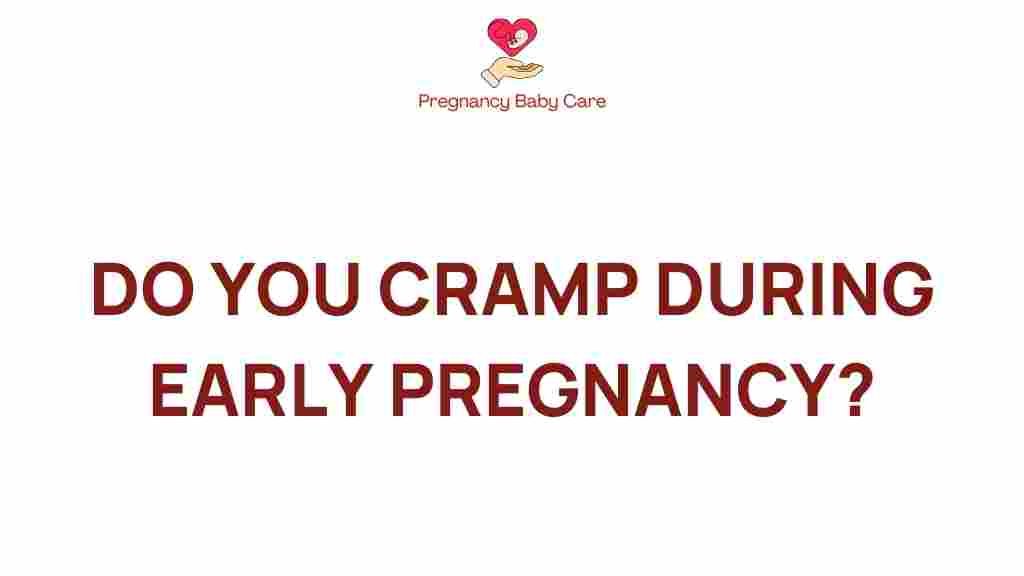Understanding Early Pregnancy Cramps: What You Need to Know
Early pregnancy cramps can be an unsettling experience for many women. As your body undergoes significant changes to support a growing fetus, it’s essential to understand what these cramps may indicate and how they fit into the broader spectrum of pregnancy symptoms. This article will explore early pregnancy cramps, their causes, and what women need to know about managing this common form of pregnancy discomfort.
What Are Early Pregnancy Cramps?
Early pregnancy cramps are often described as mild to moderate abdominal pain that occurs in the early stages of pregnancy. These cramps can feel similar to menstrual cramps and may vary in intensity. Understanding the nature of these cramps is crucial for women’s health and prenatal care.
Common Causes of Early Pregnancy Cramps
There are several reasons why women may experience early pregnancy cramps:
- Implantation: When the fertilized egg attaches itself to the uterine lining, some women may experience light cramps.
- Uterine Changes: As the uterus expands to accommodate the growing fetus, stretching and changes in the uterus can cause cramps.
- Hormonal Changes: Fluctuating hormone levels during early pregnancy can lead to various pregnancy symptoms, including cramps.
- Gas and Bloating: Digestive changes can result in increased gas and bloating, which can also cause abdominal discomfort.
Recognizing Early Pregnancy Symptoms
Along with cramps, several other pregnancy symptoms may accompany early pregnancy. Being aware of these can help you understand your body better:
- Missed Period: One of the most common early signs of pregnancy.
- Nausea: Often referred to as morning sickness, this can occur at any time of day.
- Breast Changes: Tenderness, swelling, or darkening of the areolas.
- Fatigue: Increased tiredness is common due to hormonal changes.
When to Seek Medical Attention
While early pregnancy cramps are often normal, there are instances where they could signal a problem. It’s crucial to know when to contact a healthcare provider:
- If cramps are severe and persistent.
- If you experience heavy bleeding along with cramps.
- If you have dizziness or fainting spells.
- If the pain is localized on one side and accompanied by shoulder pain.
Managing Early Pregnancy Cramps
Here are some tips to help manage early pregnancy cramps and general pregnancy discomfort:
- Stay Hydrated: Drink plenty of water to prevent dehydration and ease bloating.
- Gentle Exercise: Light activities like walking or prenatal yoga can promote circulation and relieve cramps.
- Warm Compress: Applying a warm compress to the abdomen may help alleviate discomfort.
- Rest: Ensure you get plenty of rest to help your body cope with the changes.
Understanding Abdominal Pain in Context
Abdominal pain is not uncommon during pregnancy, but understanding its context is vital for health awareness. Early pregnancy cramps can often be benign, but here’s how to differentiate between normal discomfort and potential issues:
- Normal Cramps: Mild, intermittent, and associated with other typical pregnancy symptoms.
- Concerning Pain: Severe, persistent, or accompanied by unusual symptoms like fever or heavy bleeding.
Importance of Prenatal Care
Prenatal care is essential for monitoring the health of both the mother and the developing baby. Regular check-ups can help detect any potential issues early on. Here’s what to expect during your visits:
- Routine blood tests to check hormone levels and overall health.
- Ultrasounds to monitor fetal development.
- Discussion of any discomforts, including early pregnancy cramps.
It’s recommended to schedule your first prenatal visit as soon as you suspect you are pregnant. This proactive approach will ensure you receive personalized pregnancy advice tailored to your needs.
Health Awareness: Educating Yourself
Being informed about the changes your body is going through is essential for every woman. Consider the following resources to expand your knowledge and prepare for a healthy pregnancy:
- The American Pregnancy Association – Provides comprehensive information on pregnancy.
- Pregnancy and Childbirth Books – Look for reputable titles that cover pregnancy symptoms and care.
Conclusion
Understanding early pregnancy cramps is vital for expectant mothers. While they are often a normal part of the pregnancy journey, being aware of your body and knowing when to seek medical help is crucial. Regular prenatal care, self-education, and open communication with healthcare providers can significantly enhance women’s health during pregnancy. By staying informed and proactive, you can navigate early pregnancy discomfort with confidence and peace of mind.
For more information on managing pregnancy symptoms and maintaining a healthy pregnancy, visit your local healthcare provider or a trusted women’s health website.
This article is in the category Pregnancy and created by PregnancyBabyCare Team
